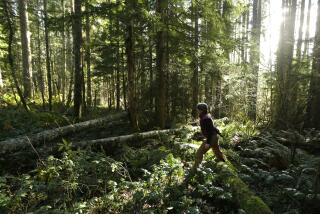Debt-Swap Plans for Conservation
- Share via
It would be most unfortunate if the misinformed judgments presented in a recent article (“Debt-for-Development Plan Is No Gift for Third World,” Op-Ed Page, Dec. 9) undercut the gratifying interest in debt-for-nature transactions that has been expressed by the U.S. financial community, debtor nations, and conservation groups in the United States and abroad. The article asserted that debt swaps mainly serve to provide tax breaks for U.S. banks, funds for U.S. nonprofit organizations, and for both parties, heightened control over Third World affairs. The debtor nations and their non-governmental organizations, the authors claimed, are simply left out. Based on our recent experience with a debt-for-nature swap in Ecuador, we consider all of these conclusions incorrect.
Debt-for-nature deals occur only after conservationists and government officials within a debtor country--not U.S. banks or nonprofit groups--establish the terms under which debt donated from U.S. sources will be applied to conservation priorities within their country.
Once a framework for debt swaps has been established by a debtor country, U.S. conservation groups that routinely work in that country can use their own funds or donations to purchase a small amount of commercial debt from U.S. sources.
Regardless of the mechanism, the role of U.S. banks play in the deal ends as soon as the debt changes hands. Under the Ecuador model, the central bank redeems that debt with local currency bonds which are transferred to the local group. The proceeds are used to establish and manage parks and reserves, train scientists, teach children about the natural world, or to serve other conservation needs.
The amounts of money involved are trivial in the context of international finance or the tax liability of U.S. banks. Ecuador’s Central Bank, for instance, has authorized debt-for-nature swaps totaling $10 million, far more than any other country; yet this amount would retire only about 1/10 of 1% of Ecuador’s total external debt.
Investments of this scale, however, are truly remarkable in the realm of international conservation.
ROQUE SEVILLA
President
Fundacion Natura
Quito, Ecuador
KATHRYN S. FULLER
Executive Vice President
and General Counsel
World Wildlife Fund
Washington, D.C.
More to Read
Sign up for Essential California
The most important California stories and recommendations in your inbox every morning.
You may occasionally receive promotional content from the Los Angeles Times.













